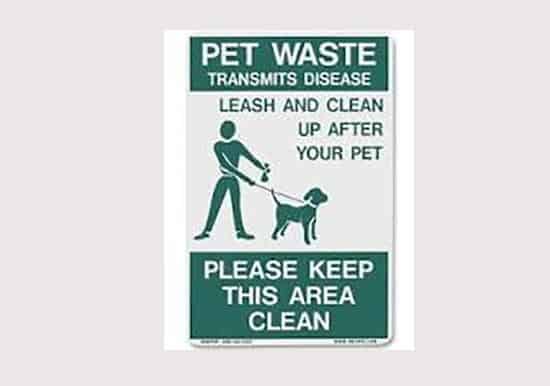Bringing home a new puppy or kitten can be a fun and exciting experience. However, the learning and development process for puppies and kittens can be challenging. Biting is a common issue for young pets and needs to be addressed properly.
Why Do Puppies and Kittens Bite?
Biting, in which a dog or cat actively and purposefully bites down with their teeth (although not necessarily to break skin) is a common behavior in puppies and kittens. Mouthing, which is a general term for dogs or cats that put their mouths/teeth on people and other pets, sometimes in a chewing manner, sometimes in a nipping manner, is also common in puppies and kittens and tends to occur for the same reasons as biting. Biting and mouthing are normal behaviors in young, developing dogs and cats and are rarely associated with aggression.
Reasons for biting include:
- Biting can be a way to communicate or achieve a result in puppies and kittens. Just like with human infants and children, a young pet’s communication skills are a little bit more basic and they can’t do as much for themselves as they could as an adult. Biting is a way to say, “No! Stop that! I’m afraid!” or “I don’t like that!” or even “Come on, come play with me!”
- Play biting or mouthing during play is extremely common in puppies and kittens. It is not uncommon to see them wrestle, growl, and posture aggressively as a part of normal, healthy play. If things get out of hand, the offended youngster will yelp or distance himself until things calm down. Issues can arise when puppies and kittens play too roughly with their human owners and normal dog or cat social cues are missed because of species differences.
- Biting can be associated with hunting behaviors. This is probably seen more often with cats than dogs, and may be associated with chasing or unexpected attacks. It is an instinctive ritual to help teach kittens and puppies how to hunt. Hunting behaviors, more often directed towards dog or cat housemates, can be an issue with humans, especially if the little one doesn’t have animal “siblings” to play with. Their humans may be the only moving objects with which to practice this behavior.
- Biting and mouthing may occur during times when adult teeth are replacing baby teeth.
- Mouthing is part of how they learn and gather information about food, toys, and their surroundings.
- Biting/nipping can be breed or genetically associated, as with herding dog breeds.
- Rarely, biting can be aggressive in nature for puppies and kittens.

Consequences of Biting
Biting and mouthing may be normal for puppies and kittens, but continuing to bite into adulthood can lead to issues. Normally, young animals learn to stop biting during play when their mother and siblings correct them with yelps or distancing themselves. When siblings and parents are not available to teach a little one how to behave in the family, human owners must step in. Long-term consequences of biting vary depending on the cause. For example, biting out of fear, frustration, or to avoid something can teach bad habits if not prevented. When biting achieves the desired result of getting a human to stop an action (such as biting while having nails trimmed), the youngster could potentially learn that biting to get what he wants as an adult is acceptable. The same goes for biting because of attention seeking. If a puppy or kitten is mouthy as a means to get you to play with them and give them attention, rewarding this behavior with any kind of attention (to some pets, even corrections are attention) could mean continued mouthing or attention seeking behaviors as an adult. Even mouthing because of teething can lead to bad habits and continued mouthing well beyond the onset of adult teeth if not corrected.
Regardless of why a youngster bites, biting should never be encouraged because it can lead to continued biting into adulthood, and as adults dogs and cats that bite can inflict serious damage and/or result in a poorer quality of life for themselves and their owners.
How to Manage Biting
Below are some suggestions for discouraging and preventing biting and mouthing. Remember that this is a learning process for everyone and that some suggestions will not be as effective as others depending on the reason for biting, such as play biting vs fear/avoidance.
- Do not encourage mouthy play or play biting between the pet and humans. Rough play, such as wrestling or rough housing, between owners and pets can encourage mouthing behaviors and should also be discouraged in a mouthy pet.
- It is important to find a way to meet the need to bite through play, chewing because of teething, and hunting behaviors.
- Use time outs to de-escalate biting and mouthing behaviors and calm down your pet. This can be done by removing the pet or yourself from the pet’s attention when play biting occurs, including eye contact and talking to the little one; this time out should be brief but repeated if biting continues during an interaction. Remember to come back to attention and play with love and excitement once the pet has settled down and quits biting.
- Use command words, such as “sit,” to distract from biting. Give a reward only if the biting stops and the command is followed. This may be easier with puppies than kittens.
- When biting and mouthing, redirect the puppy or kitten to something more appropriate to chew on such as squeaky, jingly, or chew toys.
- Use a high-pitched yelp noise like the siblings or mother would make or a high-pitched “ouch” when bitten. Be careful that this does not create fear or additional excitement.
- In some situations, a firm, strong command such as “no bite” may be effective to distract from mouthing and biting. This command must be performed during a biting behavior. Again, be careful that this does not cause fear or increase excitement.
- Make sure you are providing a good outlet for biting behaviors; youngsters need plenty of play time, exercise to expend some energy, safe encouragement for hunting behaviors, and so on.
- Treat or food puzzles can encourage food-seeking and hunting behaviors that can decrease the need for mouthing and biting. Owners that run and/or yell when bitten may encourage and worsen inappropriate hunting behaviors.
- Remember to reward for good behaviors with attention, petting, and treats. Providing the appropriate reward for a kitten might be a little more difficult than for a puppy, but food and toys still work, especially at a young age.
- Veterinarians can be a valuable tool when attempts to minimize biting are unsuccessful. Discuss your concerns with your veterinarian, who may refer you to a veterinary behaviorist for more help.
Punishment for Biting
Do not punish a puppy or kitten for biting. Punishment, especially for a normal behavior, can prevent a puppy or kitten from learning normal skills like play biting to hone hunting skills. It can also affect the bond between the pet and humans and may even lead to fear, aggression, and/or anxiety. Punishment does not serve to teach an appropriate behavior. The best solution is to stay consistent with your training methods and be patient. Use management tools that encourage better actions and provide good outlets to meet the needs of both you and your young pet.


